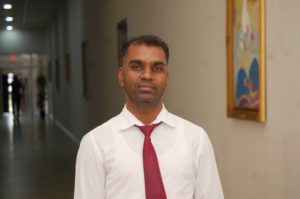Some would dismiss the ubiquity of race and racism but these constructs, arising out of a European 18th century discourse that ran parallel with the European conquest of the rest of the world and especially with the justification of African slavery, but these are still omnipresent. As we wrote last week, race and racism, are part and parcel of the “Western Enlightenment,” imposed as one weapon in the European arsenal of imperialistic conquest even as it spoke loftily of ‘freedom and equality and democracy. Notable names such as Hume, Kant…
Read MoreCategory: Editorials
An opportunity to showcase Guyana’s beauty
Saturday, February 23, will mark the 49th anniversary since Guyana became a Republic. That historic moment almost five decades ago officially severed ties of governance with the British colonial power. It’s a national holiday, Mashramani, which basically connotes celebrations after hard work. It offers the opportunity to showcase national efforts of hard work for the spectacular costume and float parade through some streets in the city as splendour, creativity, vibrancy and revelry take the spotlight. All involved must be commended for their efforts to bring much joy to the nation…
Read MoreRace and racism
With elections on the horizon, “race”, of course, has taken centre stage once again. In Guyana, we have been very generous with the use of the word “race”. This is another legacy of the British who defined us as “the land of six races”. Many Guyanese in the pre-independence era actually boasted about this classification. “Race” has been a very fluid, changing concept and it is not coincidental that the modern usage of the term is bound up with the history of the West Indies since “race” and “African slavery”…
Read MoreThe Diaspora and development
The Guyanese Diaspora and how they can contribute to the country’s development has been a subject of much discussion in the past. More often than not discussions have always been centred on how we may encourage the thousands of Guyanese living outside of Guyana to return and to help contribute to this country’s development. The recent oil discoveries have caused Guyana to be placed in the international spotlight. Just a few days ago, United States oil giant ExxonMobil announced another two more oil finds offshore Guyana, bringing the total number…
Read MoreThe degutting of democracy in Guyana
The return of democracy to Guyana in 1992 was part of a global movement dubbed by Harvard political scientist Samuel Huntington, as the “third wave” of democracy following the first wave in 19th century Europe and the US and the second, following WWII. At the time, one local commentator cautioned: “the history of the previous waves should temper our euphoria somewhat. The transition process is not automatic – there are no irresistible democratic forces marching through history. At best, there may be a demonstrator effect. The process may also be…
Read MoreFor agonistic, not antagonistic politics
The no-confidence vote (NCV) and its subsequent passing in the House of Assembly; its further reaffirmation by the Speaker and its eventual constitutional validation by our Chief Justice has only served to increase the always simmering polarisation of our society into two antagonistic camps, with their ethnic cores. There are some new “parties” promoting “constitutional change”, to address this, but unfortunately they all seem enamoured of the failed Liberal model we were bequeathed. This proclivity to struggle is ineradicable because humans, pace the liberal view, do not only act out…
Read MoreUndermining the Constitution
The Constitution of a country is its highest law and has been called “the law of lawmaking” for the State. It structures and limits the powers of the three branches of Government – the Executive, the Legislature and the Judiciary – and between the organs of the State and the people. Our present Constitution was first promulgated in 1980 and was revised extensively in 2000, after countrywide hearings. While there has been expressed dissatisfaction with aspects of our Constitution, and “constitutional change” has become a mantra during election campaigns, the…
Read MoreEthnic Impact Statements
Whether the PNC’s delaying tactics in the courts and in GECOM work or not, elections are on the horizon. And as such, the partisans of the PNC are hurling bitter missives on the “discriminatory” actions of the PPP when they were in office and the partisans of the PPP are responding in kind about the pre-1992 and post-2015 PNC actions. Unlike the past, we have made some progress in calling a spade a spade and not pretending that the discrimination isn’t felt ethnically. Whether real or not, that is the…
Read MoreStalling the elections
On December 21st, 2018 the successful passage of the historic no-confidence motion (NCM) brought by the Opposition PPP against the PNC-led coalition government triggered the compulsory holding of national and regional elections to determine a new government, in accordance with the mandate given by Art 106 (6) (7) of the Constitution, the highest law of the land. As such, it also became necessary for the Guyana Elections Commission (GECOM) to make preparations for such elections, in accordance with its mandate. The government sadly, backtracked on its initial acceptance of the…
Read MoreScaling up the fight against HIV/ AIDS
Recently, the Pan Caribbean Partnership Against HIV/AIDS (PANCAP) conducted research in the Caribbean, which found that the Human Immunodeficiency Virus (HIV) prevention response is inadequate in key populations. According to the research, which was conducted between April and November of 2018, the Caribbean has made progress in responding to the HIV epidemic, but the impact of the prevention response has been inadequate, particularly among key populations. Statistics provided by the organisation revealed that the annual number of new HIV infections among adults in the Caribbean declined by only 18 per…
Read More

